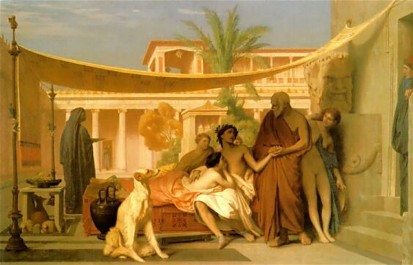I have a deep regard for Egyptian, Hebrew and Persian civilisations; but it remains true that the contribution of Athens to Philosophy is unequalled. The pre-Socratics, Socrates, Plato (and even Aristotle!) stand head and shoulders above any other thinkers of whom I am aware. This may be because it is their writings that have survived, but I don't think so.
For example, though I have the most profound respect for the Hebrews, the Torah and the rest of the Old Testament (all written and edited in a time-frame overlapping Socrates et al) does not deal with the kind of issues that Socrates and his fellows dared to and neither does it generally dare to deal with what issues it does deal with in the way that Socrates and his fellows did. Similarly, whet we have left on record of Ancient Egyptian and Mesopotamian civilisation has nothing to compare.
Many civilisations have many excellences; but the excellence of the Greek civilisation consists of its pre-eminent philosophical endeavour. To down-play this is to deny the Greeks the one thing that they have to contribute to the human patrimony. It is pretty poet-modernist, it seems to me, to seek to relativize this out in the name of a reaction against "civilization-romanticism". We should celebrate every civilisation for its positive contribution to the common good and the advancement of knowledge, but we will not do this by down-playing the unique contribution of the Greeks.
Sociologically speaking, the vitality of Christianity came from the hybridisation of Greek and Hebrew thought, which fused together the ideas of "Monotheism" (and the "Divine Lawfulness" and "Justice" associated with this) and "Rational Inquiry and Reasonableness". Arguably, both ideas were present to some degree in both traditions - which is why, I suppose, the hybridization was easy to effect - but the vigour of the New System was remarkable.

No comments:
Post a Comment